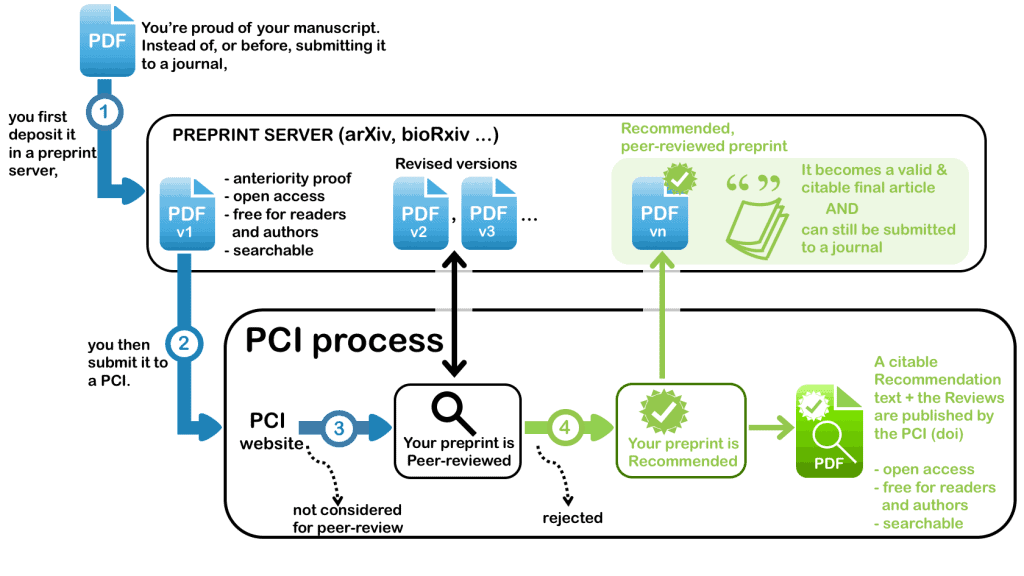- Profile
- Comments 0
- prev
- next
- Website
- Leave a comment
- prev
- next
In a nutshell
The “Peer Community in” (PCI) is a non-profit scientific organization that aims to create specific communities of researchers reviewing and recommending, for free, and at the demand of their authors, preprints in their field (articles not submitted to - or published in - journals and deposited on open online archives like bioRxiv.org). These specific communities are entitled PCI X, e.g. PCI Evolutionary Biology, PCI Ecology, PCI Paleontology....
Once recommended by and editor of one of these PCIs on the basis of rigorous and transparent peer reviews, preprints become valid references and may be considered to be articles of high value. Recommended preprints can be used by scientists and cited in the scientific literature. There is no need for these recommended preprints to be submitted for publication in classic journals (although they can be, according to the authors’ preferences). The PCI system is at no cost for readers and authors.
Goals and intentions
The motivation behind the “Peer Community in” project is the establishment of a high-quality, free, public system for identifying high-quality preprints by a specific recommendation obtained after rigorous peer-review. The aim is for this system to be recognized both within, and, subsequently beyond the community, including by funding and research agencies.
This project should lead to a new scientific publication system, in which preprints are deposited in free, open archives, and, if appropriate, reviewed and awarded a recommendation publicly guaranteeing their scientific quality. This recommendation could replace the current evaluation and editing processes of scientific journals, which are often opaque and very costly for research institutions.
Project status
Types of outputs
Review process
-
Review requested byAuthors
-
Reviewer selected byEditor, service, or community
-
Public interactionNo
-
Author responseYes
-
DecisionBinary decision
Review policy
-
Review coverageComplete paper
-
Reviewer identity known toEditor or service
-
Competing interestsChecked
Social Networks
Video
Review features
-
Manuscript hostingNo
-
Notes
Editorial process (reviews, editorial decisions, authors' replies) is published if the paper is accepted. Nothing is published if the paper rejected.
Reviewers can be anonymous if they want to.
Authors can be anonymous to reviewers if they want.
Editors must sign a recommendation text in case of acceptance.
-
Review of code or dataYes
-
Eligible reviewers/editorsNew editors of a PCI are nominated by a current editor of this PCI and approved by the Managing Board of the PCI. Reviewers are selected by Editors.
-
Tags or badgesNo
-
Criteria for inclusion
At least an Editor of the PCI has to find the article interesting (for any reasons: interesting question, interesting data, methods, results, discussion, etc.) to handle its evaluation.
Transparency
Results
-
Number of scholarly outputs commented on100-1,000
-
Metrics> 500 Editors, 3 PCIs, >50 000 pages visited/year overall PCIs



Add a comment